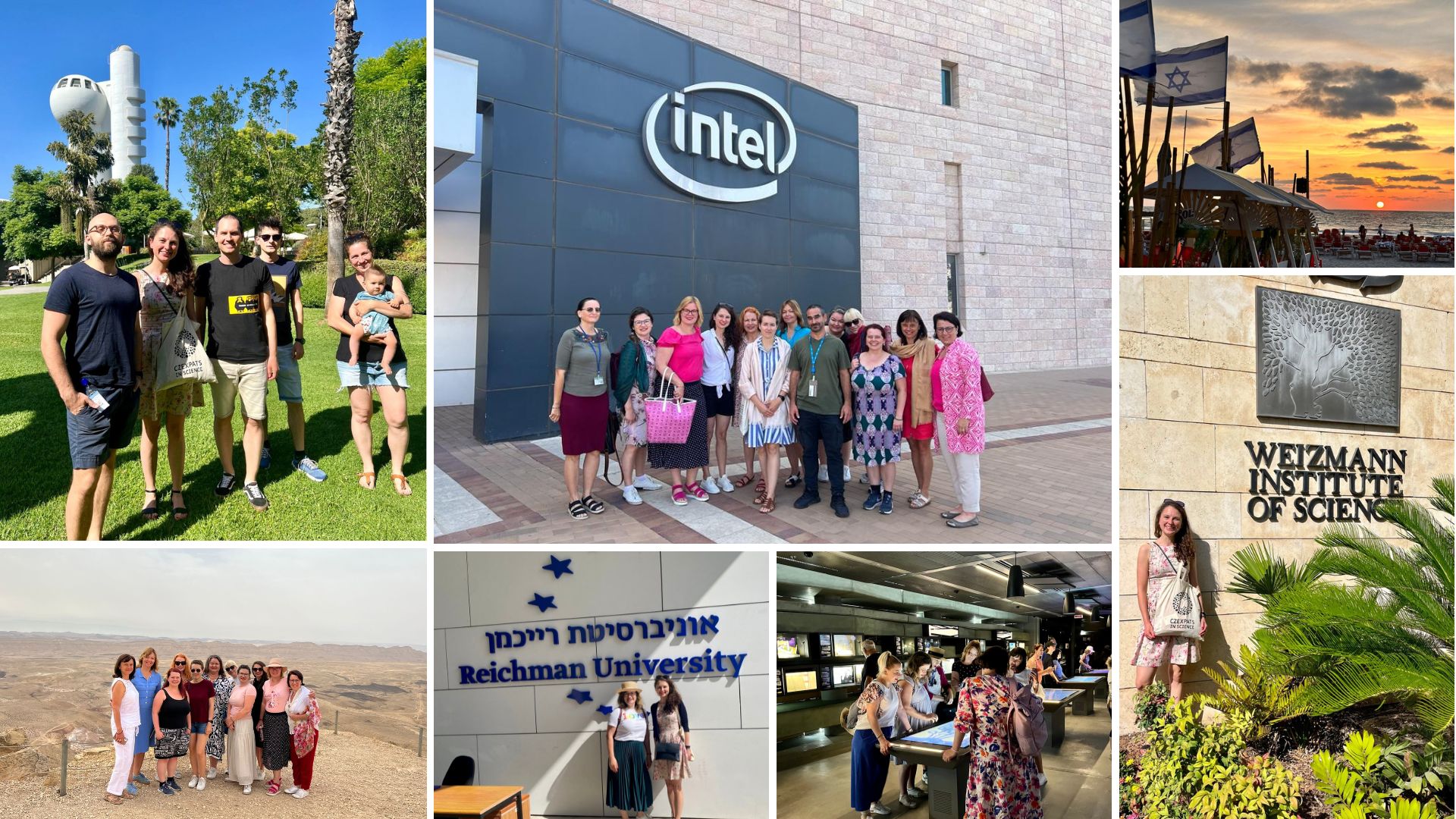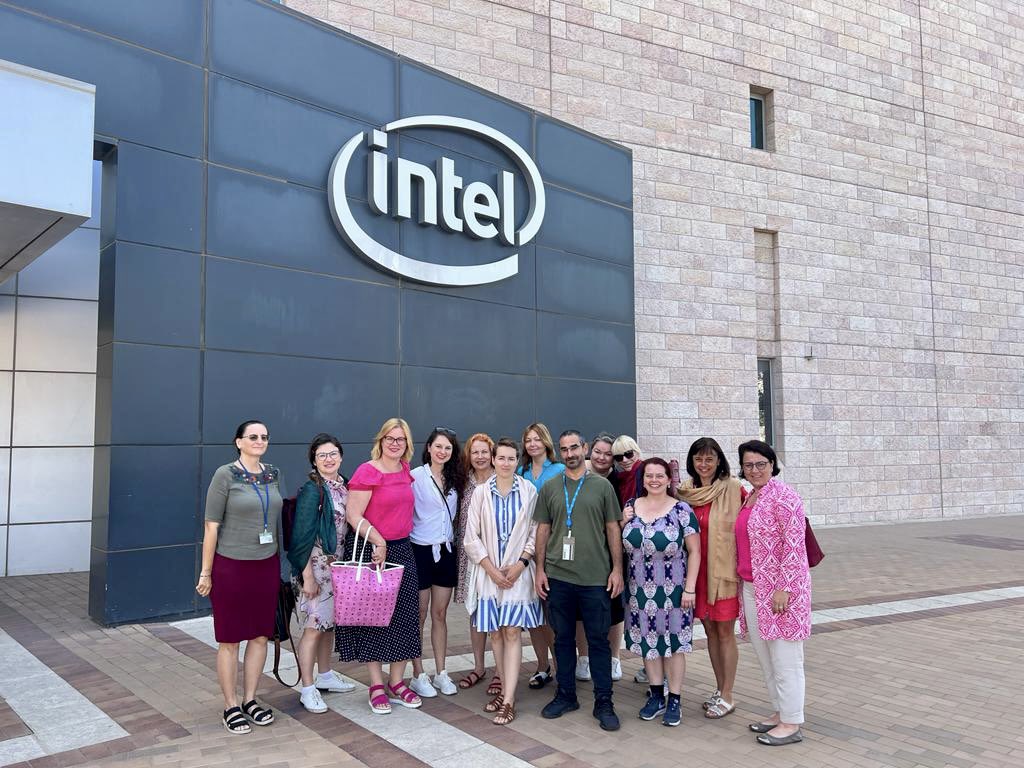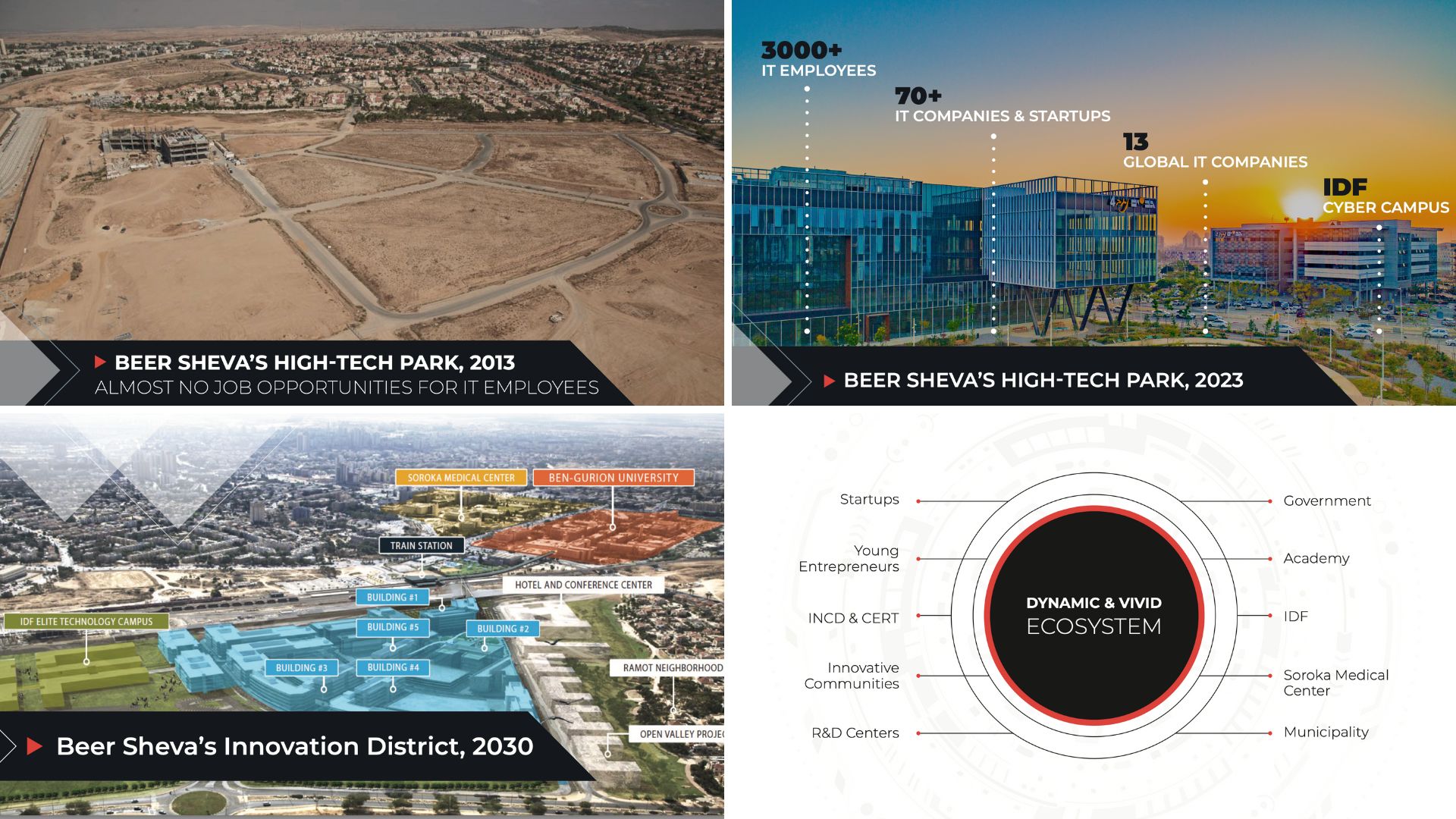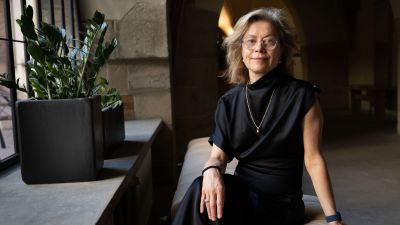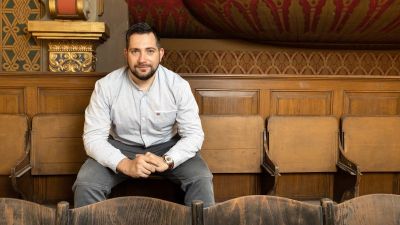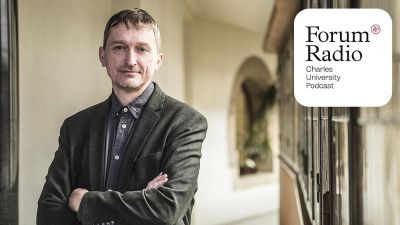How did a country that exported oranges in the 1950s become a world leader in innovation, and can that success be replicated? This is what the participants of the 3rd Women's Mission to Israel, including Pavla Hubálková from Forum magazine, found out.
"What is special about Israel? Energy! Israel is like a triple espresso," said Andy David, Director of the Innovation Task Force at the Israeli Ministry of Foreign Affairs. And he used concrete examples to explain the importance of a national brand to the participants of the women's mission. He also shared how a country that many associated with the word "conflict" became a "country of innovation". He added: "The brand is the promise. A strong brand is a promise fulfilled."
From Holy Land to Start-up Nation to Scale-up Nation
"We can learn a lot from Israel. Israel is a country of similar size and, like the Czech Republic, went through an economic transformation in the 1990s. But unlike us, Israel bet on human capital and innovation. Their education system already leads to entrepreneurship and creative problem solving," says Linda Štucbartová, the main organizer of the mission, for whom this was the 10th visit to Israel. The primary goal of the third women's entrepreneurial mission from Czechia to Israel, which is supported by the Embassy of the State of Israel in the Czech Republic and the Czech-Israeli Joint Chamber of Commerce, is to personally get to know the innovative environment and establish contacts for further cooperation. This year's trip was attended by 12 Czech women representing various fields from the public and private sectors, non-profit organizations, technology companies, higher education and healthcare.
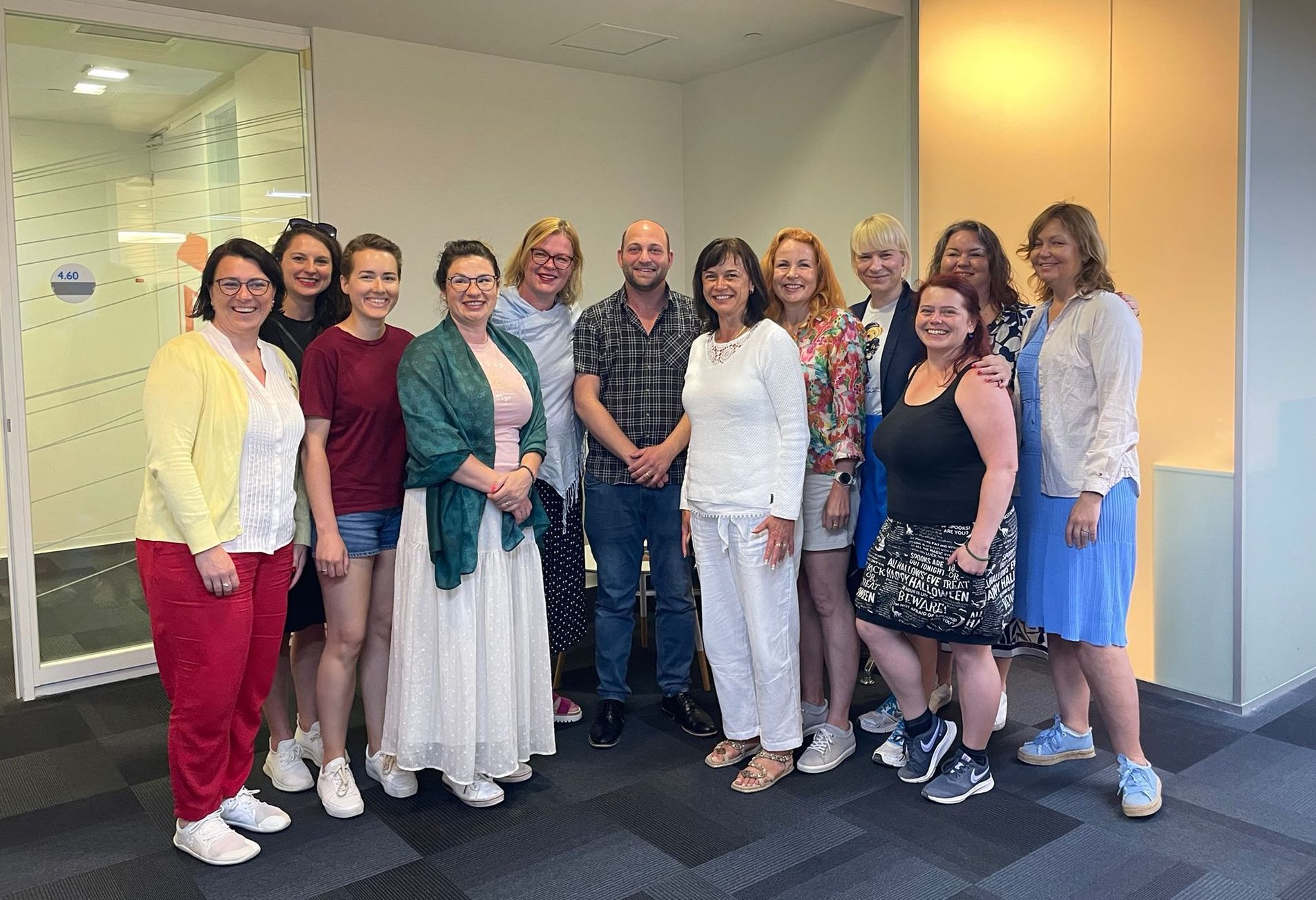
The third women's mission to Israel visited a number of innovative and educational institutions. Pictured with Cyber 7 Director Daniel Martin.
"The Israelis have decided that they want to be first a start-up nation and now a scale-up nation. And that is where they are focusing all their efforts. They think globally from the beginning, that's why, for example, they communicate everything in English, and they want to not only start companies, but they want them to scale-up and stay in Israel. I really think that we can find a lot of inspiration in Israel, since we keep saying, that we want to go from an assembly plant to a think-tank," says Štucbartová.
Israelis are rightly proud of their innovation ecosystem. Per capita, they have the most startups in the world – currently over 7,300. They also have one of the highest shares of investment in science and research relative to GDP in the world, reaching 5.2 percent in 2022, compared to the Czech Republic's two percent. Ninety percent of Israel's research and development investment is privately funded.

Start-up Nation is both a connector and a showcase for innovation. For example, they have a rooftop garden where they grow tomatoes and herbs.
The main hub and facilitator of Israeli innovation is Start-Up Nation Central, based in Tel Aviv, which offers, among other things, an interactive and freely accessible Start-up Nation Finder database. Another showcase of innovation is The Israeli Innovation Center at the Peres Center for Peace and Innovation, where they also have a new annual exhibition, The Israeli Expo, representing a selection of the most interesting projects in a wide variety of fields, from agriculture, water management, cyber security, space technology, food processing, transportation, green energy, gaming, healthcare and science and research. "I have visited a number of science centres and science museums around the world and I was impressed by their way of presentation. During the nearly two-hour guided tour, the host shared many interesting facts and the necessary context, always pointing out relevant points of interest for us before entering the next part of the exhibition and always explaining how best to enjoy the exhibition. The process itself was very interactive – for example, the creators themselves tell you about the innovations via a large screen, where you feel like they are talking directly to you. A interactive game was also a success, where we had to search for answers to various questions in the room, which enhanced the exploration of the exhibition in an interesting way. I was also intrigued by the small fact that they turn off the screens and other interactive devices after leaving the room, because it saves energy," Pavla Hubálková surmised; Pavla is a designated science reporter and science communicator for Forum magazine.

The Shimon Peres Centre will also immerse you in innovation through life-size avatars, virtual reality or interactive games, for example.
Education that fosters creativity
Living in a parched and strife-torn Israel brings with it many challenges, which is why Israelis are driven to find creative solutions, something they encourage and develop in young children. "This different approach is wonderfully evident in playgrounds, for example – no one is dictating to children how to 'play right'. They happily climb up the slide to the side, which they should be going down properly," says Delana Mikolášová, a science diplomat in Israel who in 2015 became the first ever Czech attaché for science, research and innovation.
|
Israel's national priorities in science and research Based on a broad expert debate with representatives of academia, industry and government, the Israelis have defined five areas in which they have a chance to become a global leader in 5–10 years. 1) Bio-convergence – multi-disciplinary research at the intersection of Artificial Intelligence, Data Science and Biotechnology, such as smart biosensors and 3D tissue printing 2) Renewable energy and energy storage 3) Food-tech – especially the development of alternative proteins, meat and milk produced in the lab 4) Civil space research 5) Blue-tech – marine research, protection of waters and the Mediterranean Sea as a national resource + The development of Artificial Intelligence (AI) and quantum technologies continue from the previous period |

Meeting with Delana Mikolášová at the Czech Embassy in Tel Aviv.
"You are as young as your dreams, not as old as your calendar." This is one of the quotes of Shimon Peres, statesman, ninth Israeli president, prime minister and Nobel Peace Prize winner, after whom the centre is named. Israelis are not afraid of mistakes either: "Fail fast, learn fast" is another favourite motto. You see similar motivational quotes everywhere: "Be global. Be innovative," on water bottles or "Reichman University: everything is possible," on banners covering the construction of the new campus building.

At Reichman University, they train future statesmen and diplomats as well as communicators and creatives.
|
"I had many ideas and expectations about Israel. But the reality – in a good way – took me completely by surprise and absorbed me, I just soaked up the information, the atmosphere, but above all a huge amount of inspiration. I was intrigued by their sincerity, informality and focus – they don't dwell on the unnecessary, but aim for the goal, they are not afraid to make decisions. One of the first questions was always 'Is there any way we can work together? How can we help each other? ' They know how to 'sell' themselves very well – their presentations were brisk, engaging, full of useful information – no empty phrases or irrelevant information," summarises UK Forum editor Pavla Hubálková, who has interviewed, for example, the Ambassador of the State of Israel to the Czech Republic, Anna Azari, Irena Kalhousová, an expert on Israel and director of the Herzl Centre for Israeli Studies at the Charles University, immunologist Jan Dobeš, who worked as a postdoctoral fellow at the Weizmann Institute of Science in Israel for more than three years, or the aforementioned Linda Štucbartová. Last year, she also won the Dmitris N. Chorafas Prize, which is awarded by the same name foundation in cooperation with the Israeli Weizmann Institute to Ph. D. graduates in science and engineering from all over the world. |
Another key component of Israeli society is its pervasive diversity. Jews from more than 130 countries have immigrated to Israel. "Some of the new equal opportunity rules that are coming to us from the United States, such as the diverse composition of work teams, are almost laughable, because for us it's a perfectly normal thing," shared Pablo Azor of Intel, which has the world's largest-ever fully automated chip manufacturing facility in Kiryat Gat, during the visit. Diversity and greater involvement of girls and minorities is also systematically promoted, for example, at Hadassah Academic College in Jerusalem, which already collaborates with Charles University in the course Politics and Media Reflecting Current Challenges in Czechia and Israel taught at the Faculty of Social Sciences, Charles University.
They apply and test the latest findings from science and research in practice. For example, Israel is one of the few countries where the area of deserts is shrinking due to human activity. "There is a lot of effort behind this, but it is succeeding. For example, they are building what are called liman – places where they make a depression to hold water and plant trees in it. In the beginning they have to irrigate intensively, but after a few years such oases are usually maintenance-free," explained our Israeli guide with Czech roots Helena Beinish.
Beer Sheva's High-tech Park is a prime example of how a thriving area can be built in the middle of the desert in 10 years, attracting a number of technology companies and educational institutions. Currently, over three thousand employees work here in more than 70 companies. One of them is Cyber7, which deals with cybersecurity. "Every university has a research center focused on cybersecurity. There are also a number of private companies or government initiatives. We are the connecting element," explained Daniel Martin, director of Cyber7.
The art of Chutzpah
"Creativity is not about 'thinking outside the box' but about the willingness to imagine a world without boxes," says Inbal Arieli, entrepreneur, tech influencer and author of the book Chutzpah: Why Israel Is a Hub of Innovation and Entrepreneurship. Israelis themselves are fond of saying that their success is due to chutzpah – a specific kind of daring or even arrogance and courage that they often illustrate by example: A young man is on trial for the murder of his parents and asks the court for leniency because he is an orphan.

Israelis are not afraid to "stand on their heads" either, as evidenced by a period photograph of Israel's first prime minister, Ben Gurion, in a yoga
position, taken by photographer Paul Goldman. Today, a statue commemorates the statesman.
"I also admire this self-confidence and the way they know how to present themselves," says Linda Štucbart. "They are extremely proud of their country! And I'm always very inspired by the way they receive visitors – not only that they offer you fresh fruit, nuts and cheese instead of dry sandwiches and cheap biscuits, because they value their health and yours, but above all what energy they bring to the meeting and that they are interested and really want to share their experience and knowledge," says a member of the board of the Czech-Israeli Joint Chamber of Commerce, adding: "Let's take advantage of this, let's take inspiration from Israel, let's cooperate and as they often say themselves: Dream big and think global from day one!"

Israelis are very conscious of a healthy lifestyle – they treat visitors to fresh fruit, and the outdoor sports fields are full even late into the night.


